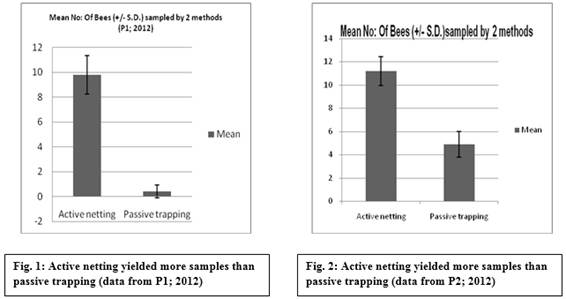Journal of Entomology and Zoology Studies
Volume 2, Issue 3
Luffa cylindrica as a host plant for pollinator bees – a study based in West Midnapore, West Bengal, India.
Author(s): Manjishtha Bhattacharyya, Susanta Kumar Chakraborty
Abstract: Pollination of flowering trees is a crucial ecosystem service and both wild and reared bees are responsible for the greater part of it. Unfortunately, the bees that pollinate the wild plants are seldom paid any scientific attention. The present paper, based on a study in lateritic West Midnapore district of West Bengal, attempts to document the bee fauna foraging on common sponge gourd Luffa cylindrica as sampled over two flowering periods in the post-monsoon season. Both passive trapping and active netting methods were employed on two plots of wild growing Luffa plants. Active netting yielded greater catch than passive trapping. Honeybees (Apis cerana indica and Apis mellifera) formed the bulk of the specimens sampled. Herbaceous plants like Luffa sp. are an important source of pollen and nectar for bees in the post monsoon season in West Midnapore, when flowering in trees is scant. However, being a creeper it is not accorded much protection and is often weeded out, which may negatively affect populations of bee foraging on its flowers.

Download Full Article : Click Here
Advertisement:


